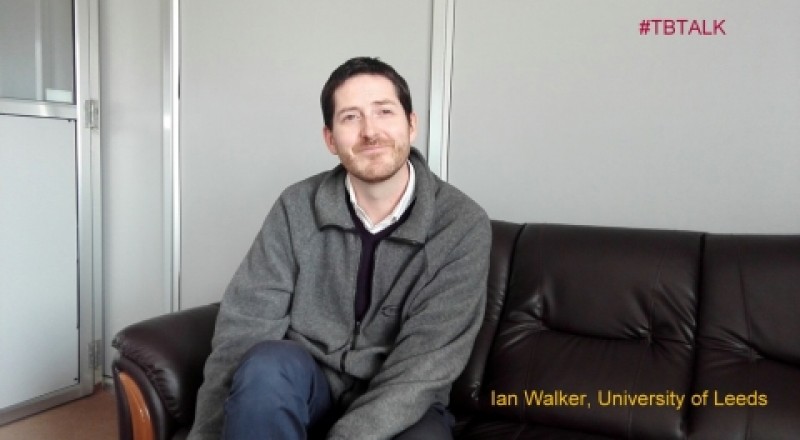Ian Walker, Public Health Speciality Registrar based at University of Leeds is at HERD for a week to support HERD researchers especially for a University of Leeds/COMDIS-HSD funded project, ‘Improving the supervision and patient support for drug resistant TB patients in Nepal’. HERD Research Uptake and Communications Unit had a short interview with him on February 1 discussing on current tuberculosis challenges and possible ways of tackling them. Excerpts from the interview:
Q: Ian, how did you find your interest to work in the sector of tuberculosis control?
A: TB is one of the major infectious diseases around the world. We see a lot of people unwell and who need treatment. It is very important that we treat people effectively not only to cure them from TB but also to control the spread to other people. My personal interest in TB is particularly in multi drug resistant TB, mainly the experience of patients who are being treated and the psycho social issues that they face during treatment. Some of the TB patients are separated from families; their income and livelihood are disrupted. At University of Leeds, we are trying to understand the psychosocial impact on the individuals; develop interventions to support them and improve their experience of being treated for drug resistant TB.
Q: In the context of Nepal, how do you think we could better implement tuberculosis control activities/programmes?
A: In Nepal, I think the treatment programmes have improved a lot over the last few years. The treatment programmes and technical expertise guiding and implementing these programmes are now getting better. Identifying TB in labs and also getting treatment is a quick process but it is hard to keep people in treatment. So, it is a major challenge to keep people in treatment till the very end so that they are totally cured before they leave the service and to follow up effectively.
I think the TB patients have big financial burden on them. Many are still unknown about the TB programme which is trying to support patients of MDR TB by providing some money to live and to have food or else it is very difficult in the country like Nepal. So there could be opportunities to provide training for income generation which will help them to be able to live and still earn money while being treated for MDR TB. Also, there are a lot of difficulties with relationships with family and community, as well as social stigma.
Q: How do you think the gap between the policy makers and the affected communities could be bridged/narrowed down in this regard?
A: There is a greater role for NGOs like HERD to act as a bridge between the policy makers and affected communities. Moreover, working with researchers and working with universities like University of Leeds and others as well. There still may be some area which is neglected; where enough work has not been done to educate people about the TB and its risk.
In Nepal too it is important to inform people about TB treatment available in the country and that it can be treated and you can be cured from TB and that’s not something that you live with for the rest of your life. Also you don’t have to die of TB. It is important to educate people about TB and help them understand its treatment. This can try change social stigma so that the people are not discriminated. There is a big role of education to help them understand TB better.
Q: There is a global shift from ‘Stopping TB’ to ‘Ending TB’. What is your view on it?
A: It is a big challenge to end TB. There are only a few diseases we have been able to end like polio. I think it is a good ambition to end TB and it should be possible with the resources and the organizations around the world. I think we are interested in helping people complete treatment which is very important to end TB because then people will stop being infected by TB. However, to help people to complete treatment it is important we understand why people leave treatment and why they are lost to follow up. That is what we are interested to see if the psychosocial issues may be one of the causes. Therefore, if we help people with psychosocial issues then they may complete treatment which might help in the process of stopping TB.
It is just one part, it is a complicated ambition. It will take lots of work and lots of coordination among them. However, it may be possible if different organisations working independently come together and work to help to end TB. We hope that we can contribute and help to develop a good strong research that shows evidence and all the works. For us, it is very important to show what makes a difference through our research. Then we can know what really works and then we can try to persuade the government and TB programmes in countries like Nepal to improve their services using the evidence.
We hope we can contribute through University of Leeds. HERD does a lot of good research and we are pleased to support HERD in such initiatives.



Comments(0)
No comments found.